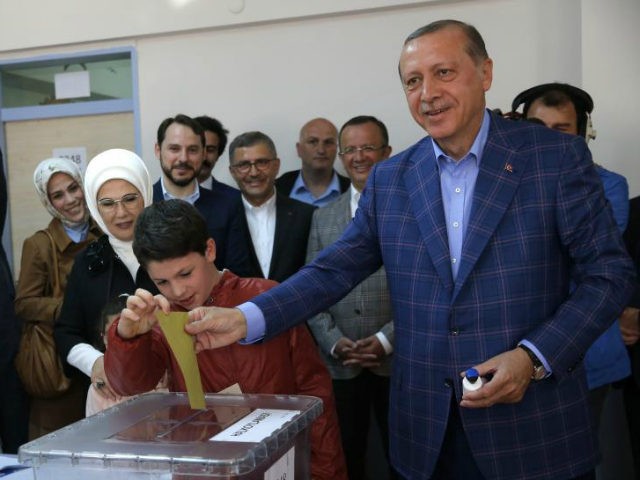Turkey’s Supreme Election Board (YSK), the election oversight agency, dismissed a call for annulling Sunday’s referendum to adopt a presidential system after opposition parties and international observers condemned the vote as neither free nor fair.
The adoption of a presidential system over a parliamentary system greatly expands the power of President Recep Tayyip Erdogan, as it eliminates the office of the prime minister and grants Erdogan the authority to appoint vice presidents at his discretion.
Three opposition parties – the secularist Republican People’s Party (CHP), the pro-Kurdish leftist Peoples’ Democratic Party (HDP), and the Patriotic Party – filed a request to the YSK to investigate irregularities at the ballot box on Sunday, including the exclusion of election observers from some southeastern regions and the last-minute decision to count ballots that had not been properly sealed and stamped by election officials before reaching the YSK.
The YSK rejected the appeal Wednesday. “The board voted separately on all three applications. Ten members voted against, one agreed and the applications were rejected by majority vote,” the agency said in a statement.
The ruling Islamist Justice and Development Party (AKP) applauded the YSK decision. “The YSK’s decision is the proper decision because the YSK has evaluated similar issues not just this time, but in the past as well, and it has always made the same decision,” Justice Minister Bekir Bozdağ said following the announcement
Bozdağ notably warned the nation’s top court, the Constitutional Court, to disregard any claims by the CHP and other parties demanding a legal investigation into the election. “The Constitutional Court does not have the authority or the right to evaluate the YSK’s referendum decision in accordance with the Constitution and the international agreement to which Turkey is a party,” he argued.
Erdogan himself also dismissed the idea of the CHP continuing to seek legal recourse to annul the election results. “There is no right to disrespect the will of the nation,” Erdogan said Wednesday night. Erdogan went further, warning the CHP not to seek recourse at the European Court of Human Rights (ECHR) because it would not have “jurisdiction” over the election. Bozdağ also warned the ECHR to stay out of Turkey.
The CHP has indeed responded to the YSK by vowing that their efforts have not concluded. “This is a serious legitimacy crisis. We will employ all legal ways available. We will evaluate tomorrow whether we will take the decision to the Constitutional Court or to the European Court of Human Rights,” CHP deputy chairman Bulent Tezcan said.
Another CHP representative, Levent Gök, accused the YSK of “committing a crime,” arguing that the agency had “abused its task by using power the law did not give it with the decision that it took before the election.” Gök was not objecting to the dismissal of the complaint, however, but with the last-minute rule adopted midday Sunday that allowed the YSK to count unsealed ballots. Previously, for the YSK to count a ballot, it had to have arrived from the voting stations with an official seal that proves an election official handled it at all times, and it was not tampered with. The opposition argues that this new rule allowed unverified “yes” votes to filter into the system, granting Erdogan his slim 51 percent victory.
The CHP has submitted paperwork alleging this and another ten “irregularities” that occurred during the election. Among other irregularities were reports of individuals being forced to vote openly, with election officials watching who voted for which option, workers “casting” votes when evidence shows they were clearly on duty, and election observers being prevented from entering voting areas in some southeastern regions.
The Organization for Security and Co-operation in Europe (OSCE) has corroborated some of these claims, as its independent observers have called the election fraudulent. The OSCE also condemned the government’s accusations that some opposition members were involved with terrorist groups such as the Kurdistan Workers’ Party (PKK).

COMMENTS
Please let us know if you're having issues with commenting.